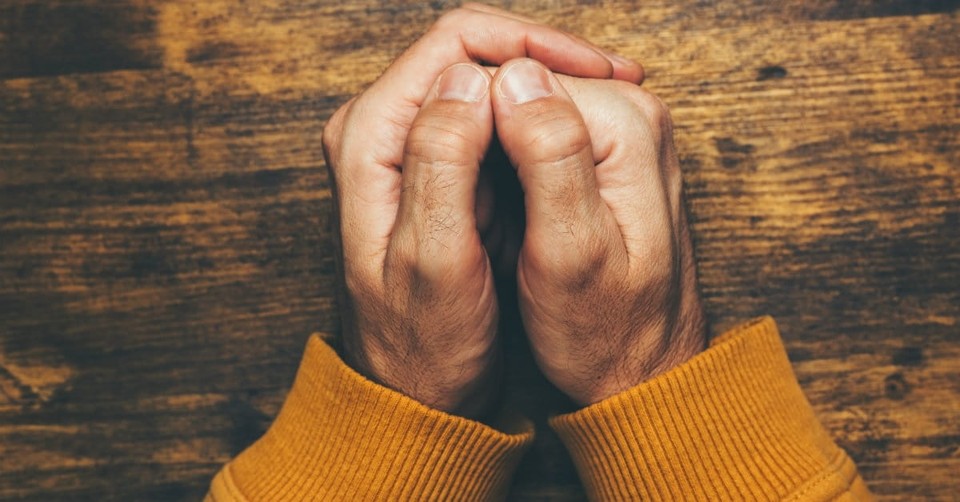If I Have Enough Faith, Will God Heal Me?

Okay, first let me say this: if you don’t have much time, just skip through what I’ve written below and go to the video at the end where Joni Eareckson Tada is interviewed by Todd Wagner. What Joni says in this video is more important than what I say below (though I wouldn’t say it if I didn’t think it was also important).
When I became insulin-dependent in 1985, I wondered who wanted me ill, Satan or God. The obvious answer? Satan. But I’m also convinced, as was the apostle Paul, that the ultimate answer is God. Paul, under the inspiration of the Holy Spirit, saw God’s sovereignty, grace, and humbling purpose of his disease (see 2 Corinthians 12:7–10). I have clearly and repeatedly seen the same in my own life.
Upon learning of my disease, well-meaning people sometimes ask whether I have trusted God enough to heal me. I respond that when I was first diagnosed, I and others did ask God to heal me. After a while, when God chose not to answer our prayers that way, I stopped asking.
When I say this, I sometimes get looks of alarm and quotes about persevering in prayer and having faith as a mustard seed. I point out that Paul asked God to remove his disease three times, not a thousand times or a hundred or even a dozen. Just three times he asked—but God made it clear the affliction had come from His gracious hand. Paul had no desire to ask God to remove that which his Lord wanted to use to create in him greater Christlikeness and dependence upon God. (Those who claim anyone with enough faith will be healed must believe they have greater faith than Paul and his fellow missionaries who suffered from ailments, including Trophimus, Epaphroditus, and Timothy.)
I have asked God to heal me more times than Paul asked God to heal him, and I’ve cooperated with people who say they feel led to pray over me that God would heal me. But I don’t regularly ask Him to do so anymore. Of course, I’d rejoice if God suddenly healed my pancreas and I no longer needed to take insulin or deal with low and high blood sugar and the toll they take. I’d feel grateful if an ethical medical technology could heal my disease. Yet if I could snap my fingers and remove my disease—apart from some direct revelation from God that I should do so—I would not use that power. Why not? Because God actually has the power to heal me, and He has chosen not to.
Interestingly, when we study the prayers of Scripture, we find that they deal far more with spiritual growth than with physical health. Notice the focus of Paul’s prayer for the Colossians:
And we pray this in order that you may live a life worthy of the Lord and may please him in every way: bearing fruit in every good work, growing in the knowledge of God, being strengthened with all power according to his glorious might so that you may have great endurance and patience, and joyfully giving thanks to the Father, who has qualified you to share in the inheritance of the saints in the kingdom of light. (Colossians 1:10–12)
It’s striking what Paul doesn’t pray for: an elder’s bout with cancer, the flu bug going around Colossae, an Asia Minor recession, kidney stones, back problems, and good weather for the church picnic. Did they have these issues back then? Sure. They had diseases, discomforts, financial strains, and bad weather. And did they pray for them? No doubt. But Scripture’s recorded prayers seldom concern such things. They involve intercession for people’s love for God, knowledge of God, walk with God, and service to God.
We should pray for ourselves and our suffering loved ones, not simply try to pray away suffering. “God, please heal this cancer” is appropriate. “God, please use for your glory this cancer, so long as I have it” is equally appropriate.
When you pray only for healing, what are you praying to miss out on? Christlikeness? Shouldn’t we learn to pray that our suffering causes growth, that God will give us little glimpses of Heaven as we seek to endure, and that He would use us?
Let me be clear: God can and sometimes does heal presently, and we should celebrate His mercy. I have often prayed for healing and sometimes witnessed it. But ultimately, all healing in this world is temporary, since people’s bodies inevitably deteriorate and die. Resurrection healing will be permanent. For that our hearts should overflow with praise to our gracious God.
No one has greater credibility to speak on this subject than Joni Eareckson Tada, who in July will mark the 50th anniversary of the accident that left her a quadriplegic. We recently featured Joni after she spoke at our church earlier this year. In a conversation with Pastor Todd Wagner of Watermark Church, she answers the question, “If you have enough faith, will God heal you?” I encourage you to watch and listen carefully to this interaction between two people who, over the years, have both become my friends. You’ll be glad you did. Todd asks great questions, and what Joni says is gold.
This article originally appeared on EPM.org, Eternal Perspective Ministries. Used with permission.
Randy Alcorn (@randyalcorn) is the author of over fifty books and the founder and director of Eternal Perspective Ministries.
Image courtesy: ©Thinkstock/stevanovicigor
Publication date: May 23, 2017
Originally published May 23, 2017.







